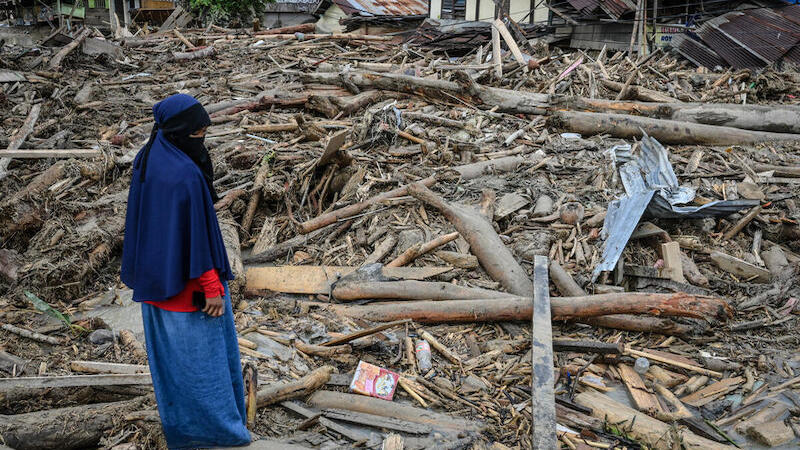On the sidelines of the UN general assembly, rich and poor countries were divided on how to deliver funds to victims of the climate crisis
Governments are starkly divided over plans for a loss and damage fund, with two months to go until it is due to be established.
While rich and poor countries have agreed to set up a fund to address loss and damage caused by climate change, they are miles apart on who pays and who benefits.
At a ministerial meeting on the sidelines of the UN general assembly on Friday, there was little sign of bridging the gap. The event complemented ongoing technical discussions ahead of Cop28 climate talks in Dubai this December, where decisions are due on how to get the fund up and running.
Ana Mulio Alvarez, an analyst at E3G, said the meeting “did not advance negotiations but it served as a political moment to put the cards on the table more publicly”.
A transitional committee has been working since March to draw up the rules for the fund.
Who gets the money?
One of the major sticking points is the question of who should be eligible for help.
The decision adopted at last year’s Cop27 summit in Sharm el-Sheikh, Egypt, says it should assist “developing countries that are particularly vulnerable” to climate change impacts. That is open to interpretation.
For the vast majority of rich countries, the pool of beneficiaries should be limited.
Developing countries call for $100 billion loss and damage target
The EU’s interim climate chief Maroš Šefčovič told the meeting that the resources should “explicitly target countries and its communities that are particularly vulnerable to the adverse effects of climate change, such as least developed countries (LDCs) and small island developing states (SIDs)”.
His views were echoed by the representatives of the US, UK and Australian governments, among others.
‘No discrimination’
Developing countries disagree with the position, arguing that all of them should be able to tap into the fund’s coffers.
Speaking on behalf of the G77 group of developing countries, a representative from Cuba said “the fund should operate without discrimination”.
Among the most vocal campaigners for a fund open to all is Pakistan, where devastating floods killed more than 1,700 people and caused damage totaling more than $30 billion last year. Classed as middle income by the World Bank, it would not automatically qualify for support based on a tight definition of vulnerability.
“All vulnerable developing countries, irrespective of their level of development and geographical grouping, must be eligible,” said Pakistan’s foreign minister Jalil Abbas Jilani. “We would not be able to lend our support to any such select, divisive and exclusionary approach.”
Speaking on behalf of the Alliance of Small Island States, Samoa said all developing countries should be eligible, but the fund’s resources should be “allocated equitably” so that the small island states are “not left behind and forgotten”.
Who pays?
The question of who pays into the fund is equally contentious.
When the European Union opened the door to a fund at the Cop27 climate talks last year, its then climate chief Frans Timmermans said large economies like China should also pay. The agreement was eventually struck without that condition, but the same debate has now reemerged.
EU’s Šefčovič said the fund should attract contributions from “all well-resourced governments”, in addition to innovative sources of financing, philanthropies, and the private sector. Spain and France floated the idea of introducing new taxes and levies as a way to bolster resources.
The UK’s energy minister Graham Stuart said governments “must break out” of “outdated categories from decades ago”, to deliver the volume of support needed. His statement was likely referencing the UN classification of developed countries established in 1992. The fund “must be financed by all, all of those capable of doing so,” Stuart added.
Similarly, the U
Read More

